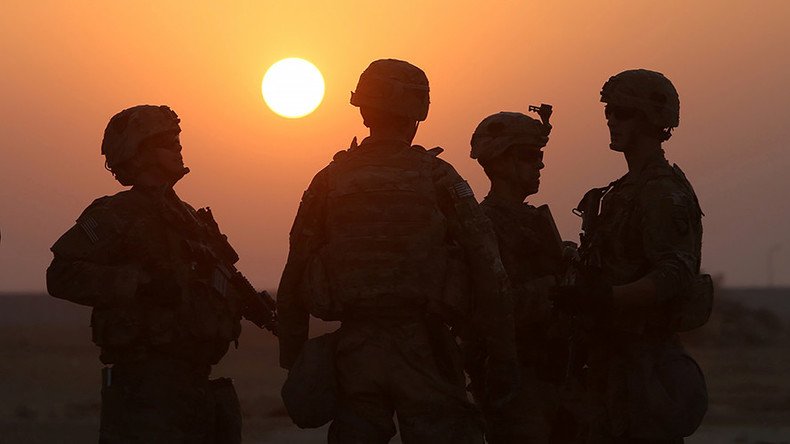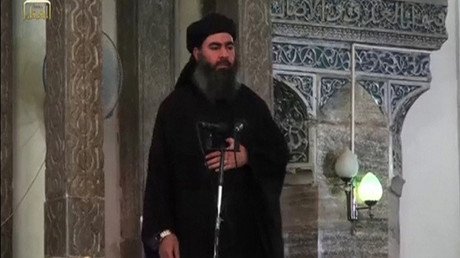US needs to get back its ‘international power’ role – Iraqi VP

The US has vacated its traditional global leadership role and lacks “a clear-cut strategy” for the Middle East, despite scoring major victories over Islamic State, Iraq’s vice-president told CNN.
Iraqi Vice President Ayad Allawi, who was the country’s first head of government after the removal of Saddam Hussein, told CNN’s Christiane Amanpour that he believes the US has been absent when it comes to maintaining global stability.
“There is a vacuum in the overall leadership in the world,” Allawi said in an interview broadcast on Friday. “The Americans need to... get back to their role as an international power, an important international power,” he added.
Back in the early 2000s, Allawi served in Iraq’s interim government, which was established by the US occupational authority shortly after the American-led invasion in 2003 forced regime change in Baghdad. This time, he was pessimistic about the West’s vision for Iraq’s fate both during and after the war on Islamic State (IS, previously ISIS/ISIL).
“To me, there is no international strategy – no strategy for the alliances that are fighting and have helped us in this part of the fight,” Allawi told CNN. Despite the looming victory in Mosul, where the terror group declared a caliphate in 2014, Washington has no recipe for solving the crises shaking Iraq and the region.
“There are no clear-cut policies where to go and what to do,” Allawi said. “Even for Iraq, it’s still premature. I think they are still deliberating on a kind of a strategy for Iraq. Nothing yet has materialized,” he continued.
American strategists say there is no reason for optimism given the quagmire of uncertainty Iraq is likely to face in the coming years. The Defense Intelligence Agency (DIA) recently predicted that Baghdad may lose Iraqi Kurdistan, a renegade oil-rich region with a long history of secessionist leanings.
“Once ISIS is defeated in Mosul, the greatest challenge to the Iraqi government is to reconcile the differences between the Shia-dominated government, the Sunnis out west, and the Kurds to the north,” Lieutenant General Vincent Stewart, the DIA head, told the Senate in late-May.
The military intelligence chief maintained that the “Kurdish independence is on a trajectory where it is probably not if, but when,” adding that “it will complicate the situation unless there’s an agreement in Baghdad.”
READ MORE: ‘Not if, but when’: US intel chief says Kurdish secession from Iraq imminent
Aside from the Kurdish independence issue, Iraq is expected to see a long-term US military presence even after Islamic State is defeated.
Media reports suggested earlier that the Trump administration is assessing options for a future deployment, though there has been no mention of “creating independent American bases in Iraq” so far, as this would require thousands of additional troops, the AP reported.
Allawi himself has recently said that Islamic State is seeking to ally with Al-Qaeda in the face of upcoming Western-run offensives. The Iraqi vice president told Reuters in April that he has intelligence on contacts between the two Islamist groups.
“The discussion has started now,” Allawi said. “There are discussions and dialogue between messengers representing Baghdadi and representing Zawahiri,” referring to Islamic State leader Abu Bakr al-Baghdadi and Al-Qaeda head Ayman al Zawahiri.
Islamic State split with Al-Qaeda in 2014 and the two groups have been at odds ever since as they struggle for recruits, money, and status as the representative of the jihadi cause.













